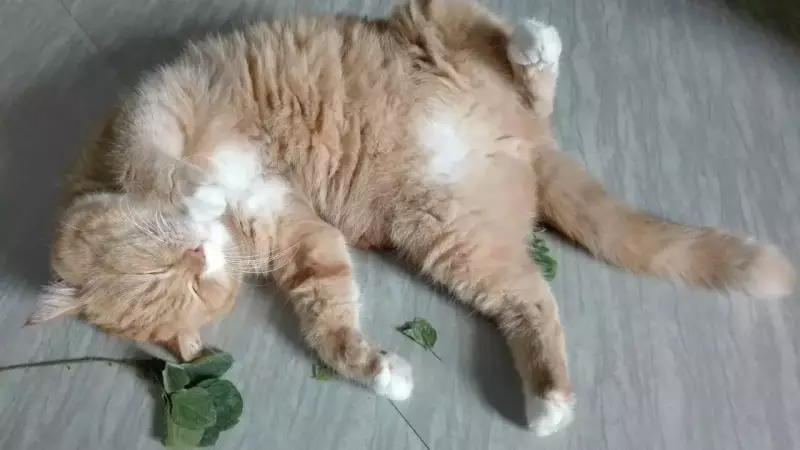
Have you ever wondered why your normally dignified feline friend suddenly transforms into a blissful, rolling ball of joy at the mere whiff of catnip? This magical herb holds a fascinating secret that explains your cat's ecstatic reaction.
The Science Behind the Feline Frenzy
Catnip, scientifically known as Nepeta cataria, contains a remarkable compound called nepetalactone. This essential oil is the key to understanding your cat's unusual behavior. When cats inhale nepetalactone, it binds to protein receptors in their nasal tissue, which then stimulates sensory neurons leading directly to their brain.
This triggers what scientists describe as a "sexual response" in the brain, even though the reaction isn't actually sexual in nature. The effect is temporary but powerful, typically lasting between 5 to 15 minutes before your cat needs a break.
Not All Cats Are Created Equal
Here's something that might surprise you: approximately 30% of cats don't respond to catnip at all! This lack of response is genetic and inherited. The sensitivity to catnip is a dominant trait, meaning cats need to inherit just one copy of the responsive gene from either parent to experience the effects.
Kittens under 3-6 months old typically don't respond to catnip either, as their olfactory systems haven't fully developed. Senior cats may also show reduced interest as they age.
Safe Fun for Your Feline
Many concerned cat parents wonder: is catnip safe? The good news is that catnip is completely non-addictive and non-toxic to cats. When the "high" wears off, cats naturally lose interest and won't experience withdrawal symptoms.
However, moderation is key. While catnip is safe, overexposure can make cats temporarily immune to its effects. It's best to use catnip as an occasional treat rather than a daily indulgence.
Creative Ways to Use Catnip
- Training tool: Use catnip to encourage scratching posts instead of furniture
- Play enhancement: Sprinkle on toys to make playtime more exciting
- Stress relief: Help anxious cats feel more comfortable in new environments
- Appetite stimulation: Rub on food bowls for picky eaters
Beyond Catnip: Other Feline Favorites
If your cat belongs to the non-responsive minority, don't worry! Several alternatives can provide similar enjoyment:
- Silver vine: Often called "cat cocaine," this affects more cats than catnip
- Valerian root: Creates excitement similar to catnip but has a stronger odor
- Tatarian honeysuckle: Safe wood that many cats enjoy rubbing against and chewing
Understanding catnip helps us appreciate the complex sensory world of our feline companions. This natural herb provides safe enrichment that can reduce stress, encourage exercise, and strengthen the bond between you and your cat.





